Powder Islands adventure
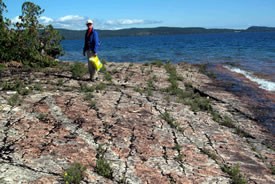
Susan Bryan checks the plants on a section of rock pavement (Photo by Mike Bryan)
"I haven’t seen that before. It's a lifer!" You may be thinking birds, but for me the "lifer" was a delicate plant with white blossoms growing in a crack on a bare cliff face. Hoary draba is a member of the mustard family and usually found...
Eel-grass: A moment in time
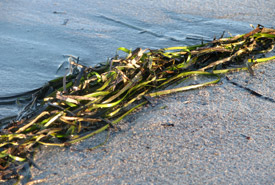
Eel-grass, Port Joli, Nova Scotia (Photo by NCC)
As we bushwhack through dense alder thickets, we hear the drone of a small plane flying back and forth over the Pugwash Estuary. It is a perfect summer day in August with a clear blue sky, perfect for capturing aerial imagery of Pugwash. The...
Brier Island's eastern mountain avens
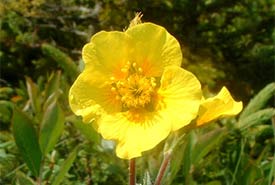
Eastern mountain avens (Photo by June Swift)
For most of the year, the eastern mountain avens does its best to hide amongst the peatland vegetation on Brier Island, located at the extreme southwestern edge of Nova Scotia. However at the height of summer, a small buttercup-like flower the...
Pollinators (and people predators) galore
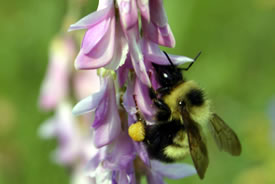
Bee on Hedysarum (Photo by Diana Bizecki Robson)
After the relative calm of my June field work on Nature Conservancy of Canada land near Riding Mountain National Park, I was kept very busy observing insects in July and August. In total I saw approximately 64 insect species making over 1,200...
Gardeners & lawn owners beware: Invasive species may be in your care! (Part Two)
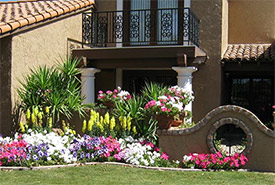
Do you know which species are invasive in your yard? (Photo by Dru Bloomfield)
Whether you are living in an urban centre, suburban subdivision or rural regions, manicured gardens provide a stark contrast to vegetation growing freely in forests, wetlands and roadsides. Many of us have been brought up to appreciate...
Make the most of your garden this year: Choose plants with purpose
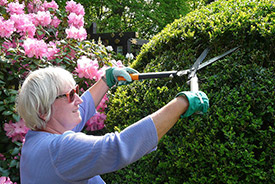
Gardening (Photo by Hans Bernhard/Wikimedia Commons)
The sun is shining, the birds are chirping and gardening season has arrived across Canada. From melons to marigolds, gardens are a great way to put homegrown produce on your table and provide a colourful backdrop. And while most store shelves will...
Restoring an endangered tree species in the mountains of British Columbia
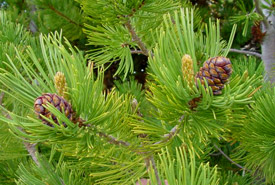
Whitebark pine needles and cones (Photo by Richard Sniezko)
In British Columbia, the majority of species at risk are found in low elevation areas where most private property is held. Most conservation properties held by the Nature Conservancy of Canada (NCC) are also found in these low elevation zones to...
Pushing up green: A photographic study

Large-format camera lens (Photo by Wikimedia Commons, Image Gallery of the Agricultural Research Service (U.S. Department of Agriculture))
Silver maple seedlings emerge from a swamp in Grey County, Ontario. This species is a common component of treed swamps in the deciduous forest of eastern Canada but very rare beyond New Brunswick. Flowers in the spring mature into seeds quickly...
Winter without central heat: How wildlife on the prairies survives
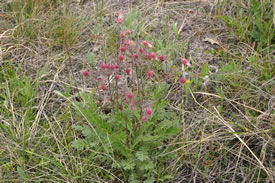
Three-flowered avens (Photo © Manitoba Museum)
During frigid winter days I find myself marvelling at how wild plants and animals manage to survive the cold temperatures. As my current area of study involves flowering plants and their insect pollinators, these are the organisms that I will...
Making peace with the Scotch pine (I mean, Scots pine)
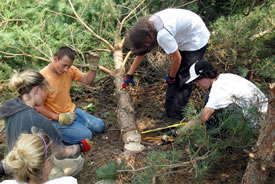
Young volunteers tackling Scotch pine on an NCC reserve, ON (Photo by NCC)
When it comes to Christmas trees, I am a balsam fir man through-and-through. I like the form, the smell and the smooth, soft needles. I also admit that I am not crazy about Scotch pine, a main alternative here in Ontario. You could say we have...

